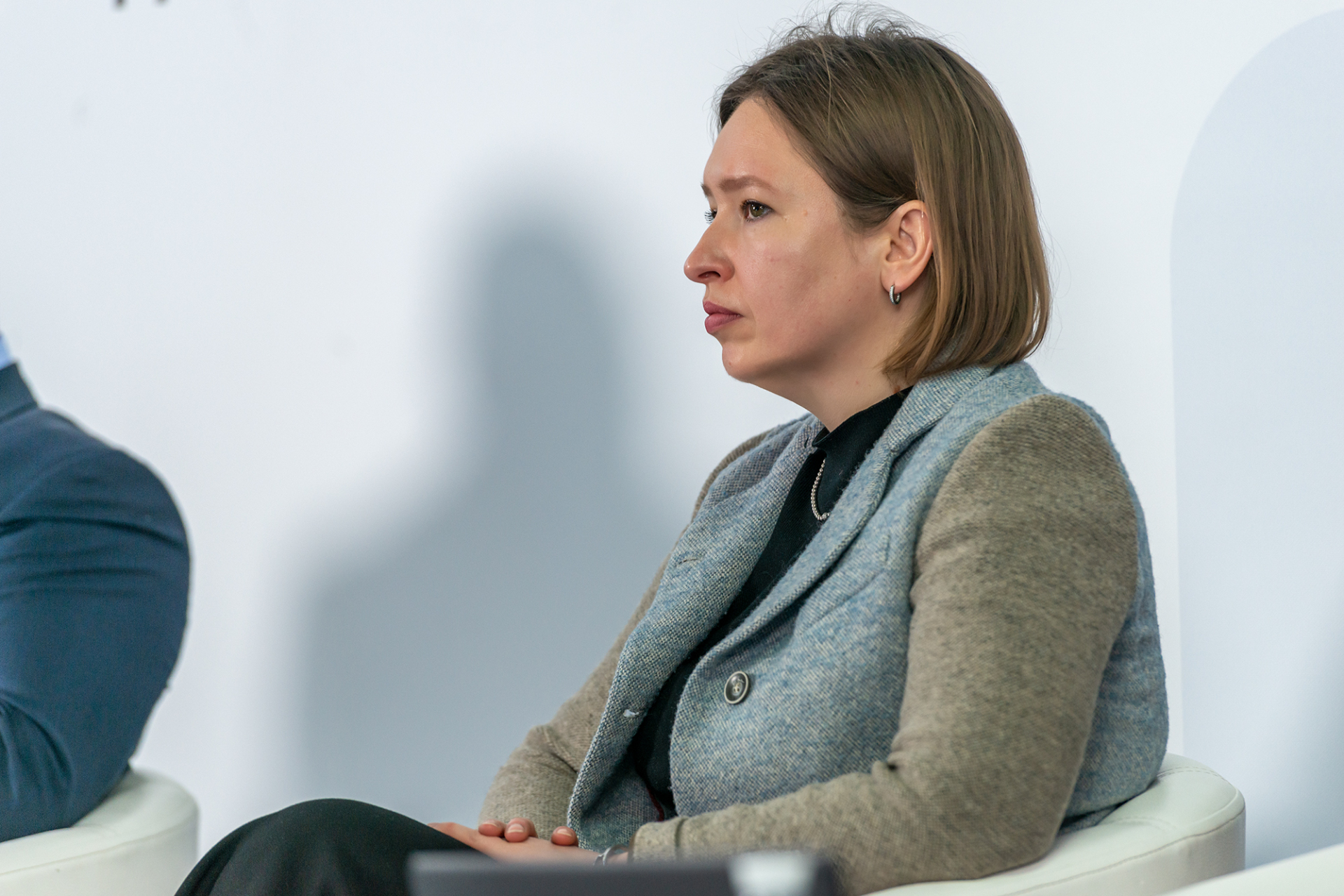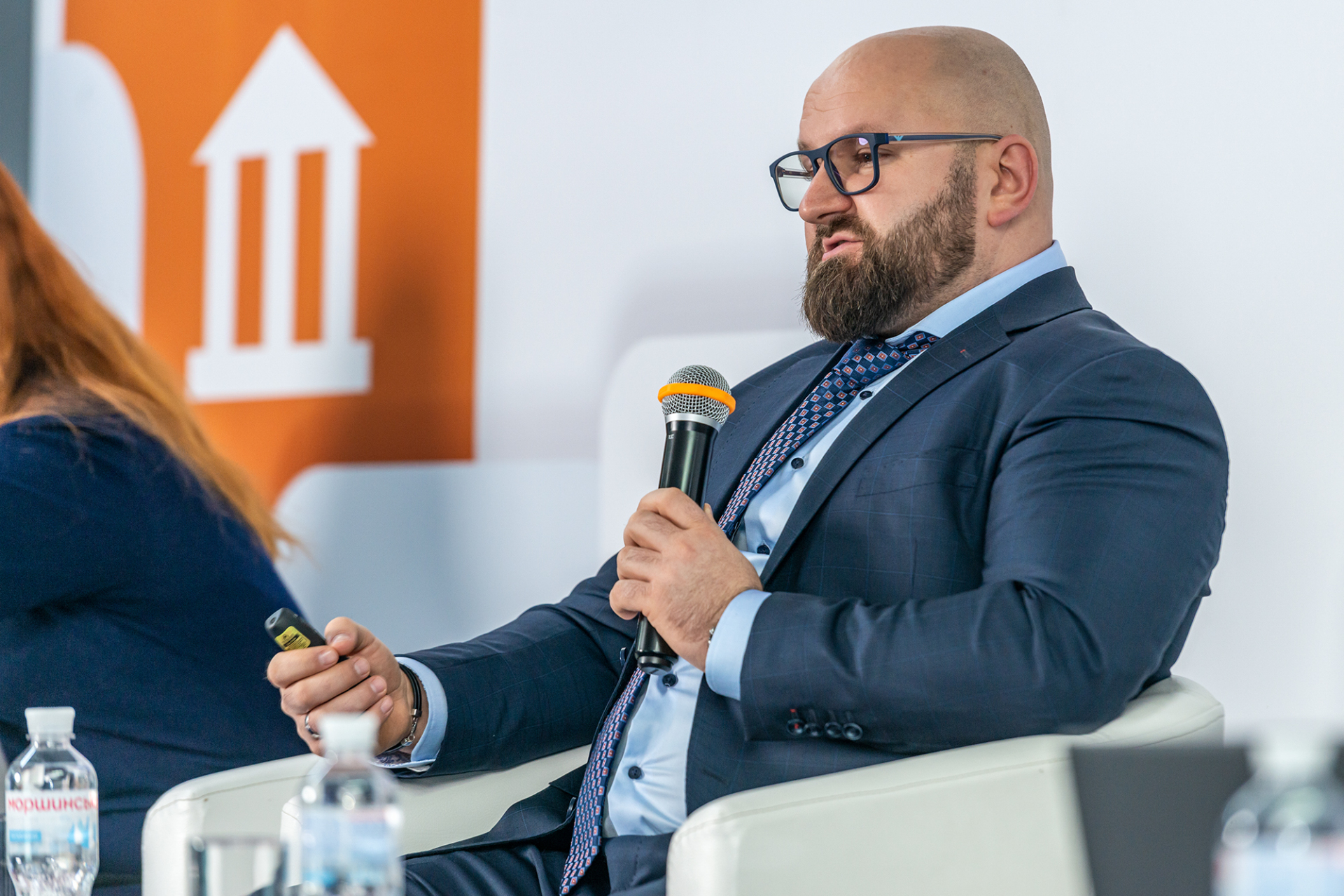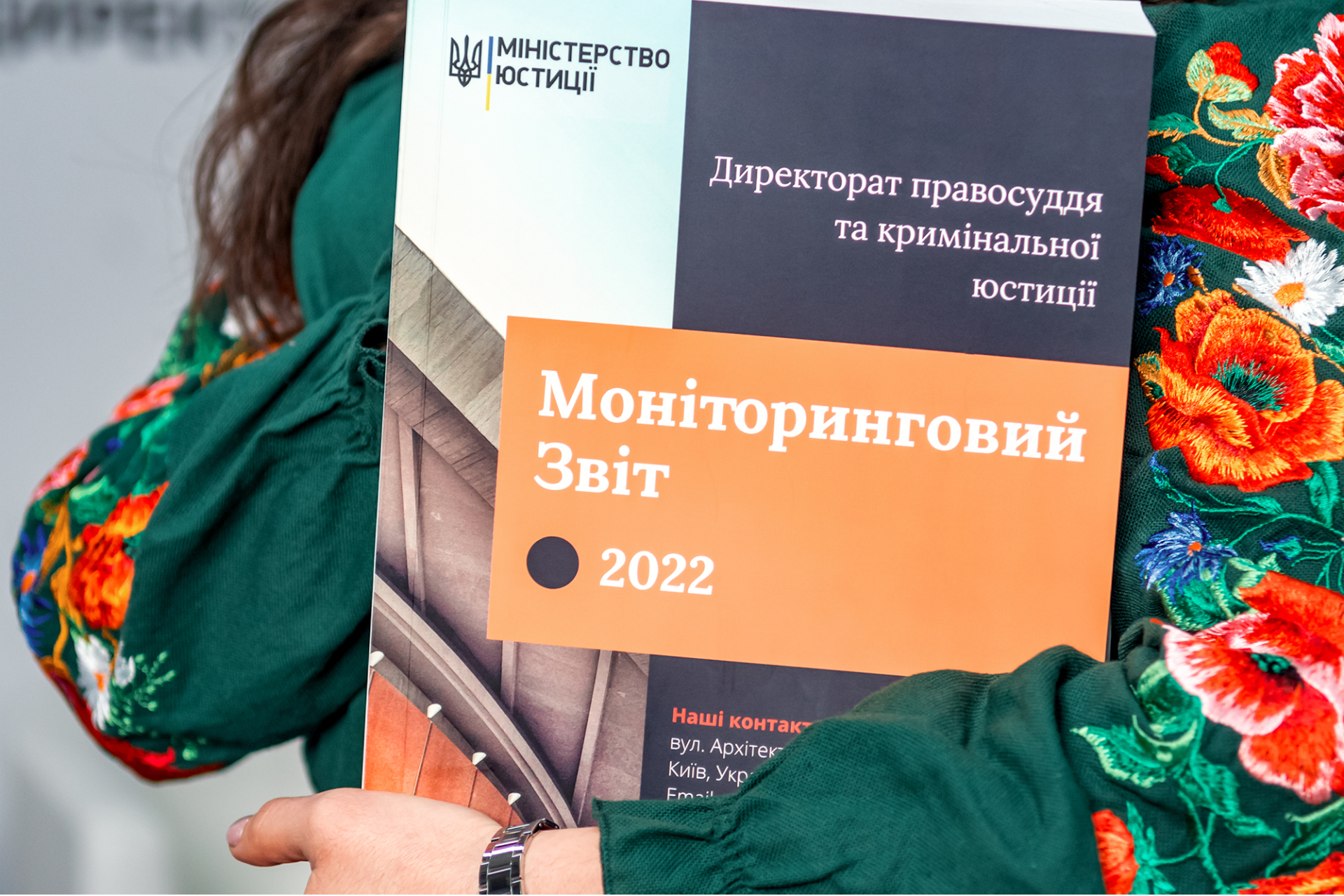With the support of the EU Project Pravo-Justice, a monitoring report as to enforcing judgments by the Ministry of Justice of Ukraine was presented

On February 7, the annual monitoring on applying legislation in the field of enforcement of court decisions was presented, which was conducted by the Ministry of Justice of Ukraine with EU Project Pravo-Justice support. This monitoring was aimed at collecting and analysing challenges in the field of enforcement and drawing up proposals for legislative amendments and other legal framework in the field specified.
In course of presenting the monitoring report, the authors focused on three issues:
- enforcing judgments of national courts where the Russian Federation is the defendant
- non-enforcement or overly lengthy enforcement of the judgments where the forced sale on debtor’s property is prohibited
- governing foreclosure on land plots.

“Today’s presentation of the report takes place during martial law, and the issues covered in the monitoring are also mostly related to wartime. In particular, enforcing decisions against the aggressor state. But, in addition to the issues caused by the current circumstances, monitoring still deals with eternal issues such as moratoria, foreclosure on the property of state-owned enterprises, and selling land plots,” said Iryna Zharonkina, Property Rights and Enforcement Component Lead, EU project Pravo-Justice during her welcoming remarks.

While presenting “Monitoring-2022”, Oleksandr Oliinyk, Director of the Directorate of Justice and Criminal Justice of the Ministry of Justice of Ukraine, spoke about the enormous amount of work done in course of the monitoring.
“31 challenges were identified and 12 online discussions were held regarding them. 383 questionnaires were developed and sent out to the parties concerned and 3495 responses were received. While addressing the issues mentioned, 143 normative acts, 199 court decisions by national courts and 58 decisions by the ECHR, 129 scientific papers were processed and the experience of more than 50 countries was analyzed,” Oleksandr Oliinyk said, adding that, based on the results of the monitoring, 17 proposals for solving challenges were prepared.

When elaborating on the challenge of enforcing judgements by national courts where the aggressor state is a defendant, Svitlana Sukhenko, head of the expert group on justice-related legal institutions of the Directorate of Justice and Criminal Justice of the Ministry of Justice of Ukraine, reported that today there are about 40 armed conflicts in the world, however, the international community has not yet developed legal mechanisms to ensure the solution to the problem of aggression and its consequences.
“Currently, there is no convention or international agreement that would determine the punishment for annexation or occupation. Therefore, Ukraine should develop mechanisms to protect its citizens and human rights in general, which can be applied as a basic solution to the problem for other states as well,” Sukhenko said. Based on the results of monitoring by the Ministry of Justice of Ukraine, general conclusions and the conceptual vision as to how the decisions of Ukrainian national courts regarding the Russian Federation can be implemented were developed.
“We offer a comprehensive approach to solving this problem. First of all, it is necessary to conduct an audit of the number of court decisions, the amount of debt due as per them, and the property of the Russian Federation and its state-owned enterprises which may be subject to foreclosure in order to repay the debt. This will make it possible to compare the resources available with the resources required and calculate what it necessary to solve the problem at the domestic level. Secondly, it is necessary to draft the provisions of the Law of Ukraine on the Immunity of Foreign States on Jurisdiction of Ukrainian Courts to consider cases against a foreign state, measures to secure a claim and enforce court decisions,” said Nataliia Pokynchereda, state expert of the expert group on justice-related legal institutions of Directorate of Justice and Criminal Justice of the Ministry of Justice of Ukraine.
The expert voiced four possible options for enforcing decisions of national courts against Russia in order to compensate damages caused by armed aggression, as well as the advantages and risks in each of them. According to her, the first option is that respective decisions by national courts should be enforced either by state enforcement officers or by a department created to that end in the State Enforcement Service. The second option provides for enforcing decisions abroad, but to make it work, the legislation of another country must recognize the judgements of Ukrainian courts and there must be enforceable assets of the Russian Federation on the territory of such a state. According to the third option, judgements by national courts can be enforced via administrative manner at the expense of the Compensation Fund created on the basis of an international agreement. The fourth option provides for the assignment of the right of claim.

Veronika Tkachuk covered the challenge of non-enforcement and overly lengthy enforcement of the judgments where the forced sale on the debtor’s property is prohibited as well as ways how to solve it. As the state expert noted, in order to understand the state of affairs as to enforcing court decisions where debtors are state-owned enterprises, it is necessary for the State Treasury to carry out an accounting and audit of the actual debt pending. On its part, the Ministry of Social Policy should also conduct accounting and audit of benefits. Moratoria which complicate enforcing judgments in this category of court decisions must be duly considered by Ministry of Justice. Enforcement proceedings should also be digitized. The Ministry of Strategic Industries needs to determine the list of property of state-owned objects strategically important for the economy and security of the state which cannot be foreclosed.
The presentation of the monitoring report of the Ministry of Justice of Ukraine ended with discussing issues related to auction sale of debtors’ plots of land.